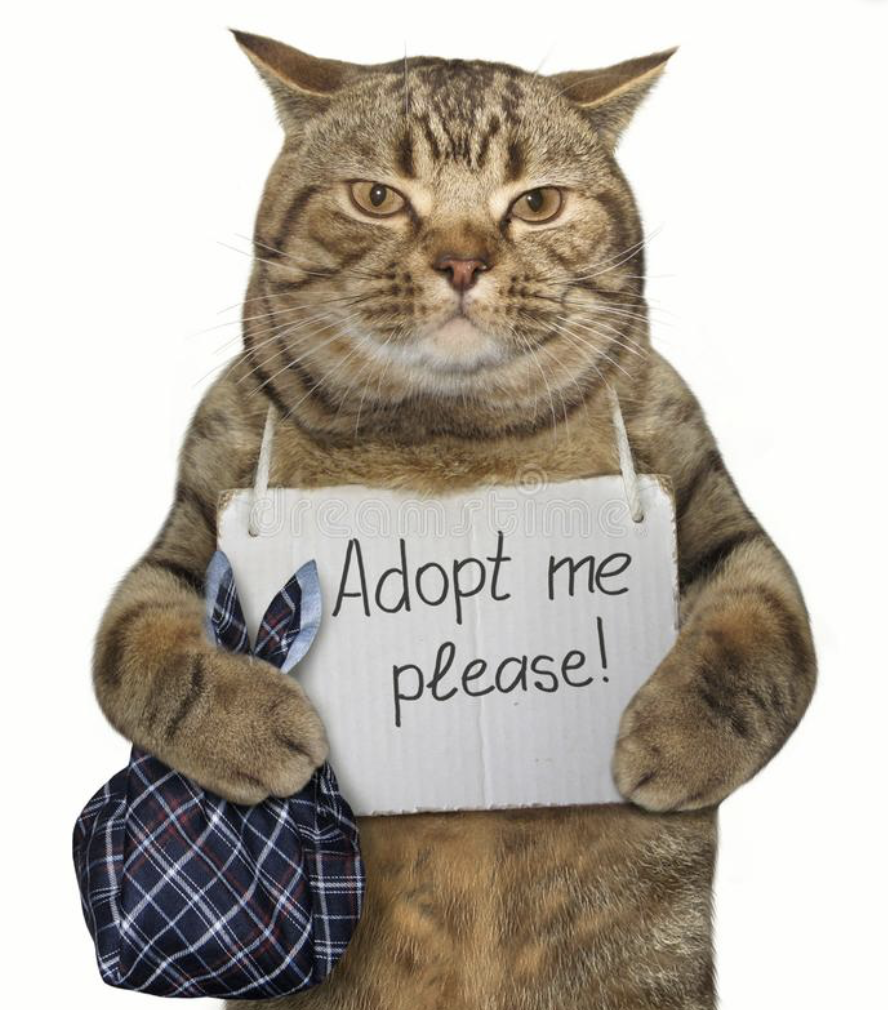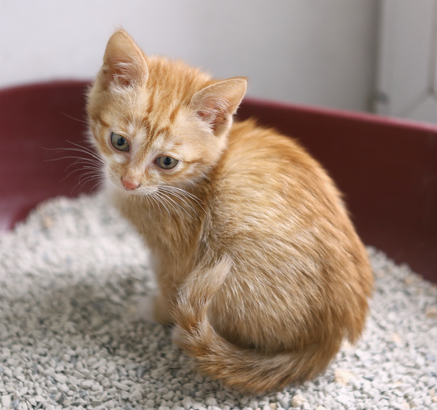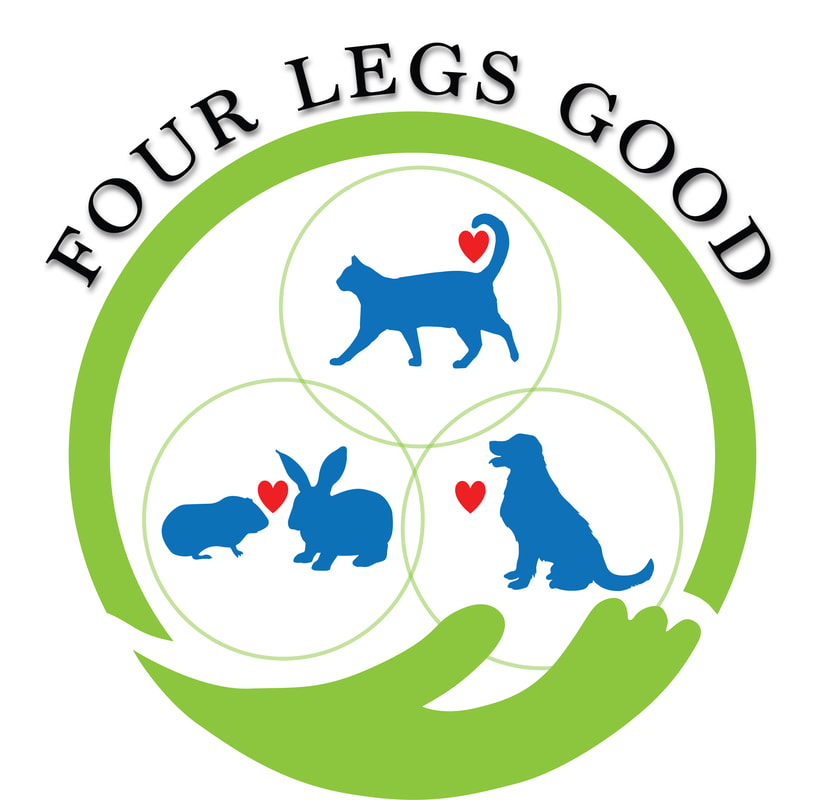Congratulations on taking the first step in adopting a cat!
|
|
|
CATS AVAILABLE FOR ADOPTION |
|
|
|
MEET YOUR FUTURE CAT
Domestic Medium Hair / Tuxedo (medium coat)
Male : : Young : : Large Note: The cat(s) pictured has found a happy home but please contact us if you are interested in adopting.
|
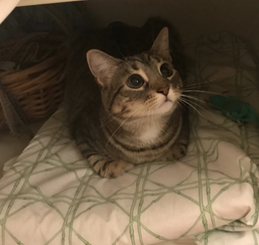
Adoption FAQs
Our goal is to facilitate adoption of healthy, friendly cats and kittens into loving permanent homes. We will provide age appropriate health care and inform adopters of known medical needs or problems. To the best of our ability, we will provide accurate information about the kitten/cat’s intake circumstances, and our assessment of their current personality and behavior. Young animals change over time, and environmental and social circumstances contribute to their development. We cannot promise anything about the future of a kitten/cat in our care, but will make every effort to have the best possible match.
Our goal is to facilitate adoption of healthy, friendly cats and kittens into loving permanent homes. We will provide age appropriate health care and inform adopters of known medical needs or problems. To the best of our ability, we will provide accurate information about the kitten/cat’s intake circumstances, and our assessment of their current personality and behavior. Young animals change over time, and environmental and social circumstances contribute to their development. We cannot promise anything about the future of a kitten/cat in our care, but will make every effort to have the best possible match.
|
What is the application process?
The application form found on this website is pdf fillable and can be returned by email. If you prefer, it can be printed, then either scanned back, or a picture taken and sent back via email or phone. We will review the application and talk to the adopter to ensure the home is safe, responsible and loving. If this is for first time cat/kitten owners we will spend some time discussing what life with cats is generally like. There is an adoption fee of $150 payable by cash or check. This includes the blood test for FIV/Feline Leukemia, three FVRCP (distemper) vaccinations, dewormers, rabies, and the spay/neuter. If these things are not completed prior to adoption, then arrangements will be made to obtain them with the mobile vans we use: PAW on Patrol and TARA. |
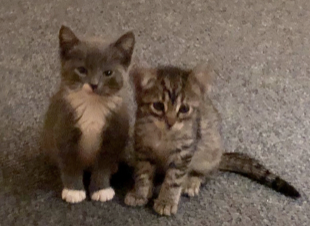
What kittens are available?
Kitten adoptions can happen quickly, but we try to keep our postings on PetFinder, Facebook and the website up to date. On PetFinder our kittens are searchable under Four Legs Good, zip code 10970. You can call (877) 856-2616 or email us at [email protected] to get the most current information as we leave “pending adoptions” posted until they are completed.
How can I meet the available kittens?
We don’t have a facility, so all kittens are raised in foster homes and you will need an appointment to visit them. If needed, we will do our best to bring kittens to one place so a prospective adopter can meet several. Days, evenings and weekends can all be accommodated with a little notice. We think it’s great when all members of the household show up to meet the kitten and decide together. It’s a big commitment to take on a new family member!
Can I bring the kitten home that day?
Maybe, and if this is your goal please let us know. We want the kittens to be approximately 8 weeks old or more, healthy, vaccinations started, and appear “ready”. Too young kittens may be pre-adopted and stay with the foster. If siblings are adopted together they can likely go home earlier as social development and companionship will continue. The adopter’s application must be approved which can happen quickly or may get delayed while we wait for a response from a vet reference or landlord. Please bring a carrier to pick up a kitten. Two kittens can go home in one carrier.
Do you offer a guarantee on the health of the kitten?
Almost all of our kittens were born outdoors to feral mothers. Sometimes we get them motherless and need to bottlefeed. Often they come in sick and receive antibiotics and extra care to make them healthy. We seldom have more than basic info so we do our best to maximize the health of the kitten and inform the adopter of anything we know. However the unexpected can happen and we will not cover vet bills. Please NEVER give one of our kittens away due to incompatibility or health concerns as we will accept them back. Call or email us to discuss problems and we will respond.
What do I do when we get home?
The foster family will give you individualized tips for what your kitten prefers but in general:
Keep them contained in a smaller area for the first few days so they can settle themselves, find the litter box reliably, and get comfortable. A big new home may be interesting, but also quite scary! After that use your discretion about introducing new areas of the home. Remember most kittens have siblings, and adoption is a big separation. They will likely be quite scared and lonely. Expect some mewing and searching behavior, and offer cuddles.
Other pets in the home: If other pets are already in the home, we will discuss optimal ways to introduce them. Do not expect immediate friendship as a new family member disrupts the balance in a home. Introduce slowly over days, preferably through a closed door to spark interest. Place an object with each cat’s smell in the other’s area. Most kittens are flexible and adapt to the established cat. Most established cats sulk, hiss, and even bully the new one. You don’t need to intervene in every skirmish, but also don’t let the little one get injured if the established cat is truly hostile and not just fussy. Almost always detente—even friendship— is reached over weeks.
Litter: Any litter is fine. Keep it clean and easy to locate and there should be no accidents. If your house is large, or there are other cats, consider getting a second litter pan. Little kittens can’t always make it to another level of a house to find their box. Sometimes older established cats can guard a litter box for intimidation of new cats.
Food: Kitten food is recommended up until 1 year of age for best nutrition. Wet food is recommended as cats do not usually drink enough water. Discuss how much the kitten is currently eating with the foster. Leave out dry food and water. The foster will tell you what brand the kitten is currently eating. If you want to change to another brand introduce it slowly over days, mixing it in with the original food so the kitten’s digestion can get used to the change.
Cat toys: Offer toys for bonding and self entertainment.
Make sure there is at least one scratching post, otherwise rugs and furniture can seem like a reasonable choice to a kitten. Scenting it with catnip can encourage its use. Trim their nails to discourage scratching. Never, ever de-claw. While inhumane and painful for the cat, it also leads to worse behavioral issues with biting or acting out. It is also illegal in New York.
When you adopt, you will have at least one contact number for a member in our group to call with questions or concerns. Also you will need to find a good vet for ongoing guidance.
Because adopting a cat comes with a lot of change for both pet and pet parent, we’ve compiled a checklist to help make the transition as smooth as possible.
Kitten adoptions can happen quickly, but we try to keep our postings on PetFinder, Facebook and the website up to date. On PetFinder our kittens are searchable under Four Legs Good, zip code 10970. You can call (877) 856-2616 or email us at [email protected] to get the most current information as we leave “pending adoptions” posted until they are completed.
How can I meet the available kittens?
We don’t have a facility, so all kittens are raised in foster homes and you will need an appointment to visit them. If needed, we will do our best to bring kittens to one place so a prospective adopter can meet several. Days, evenings and weekends can all be accommodated with a little notice. We think it’s great when all members of the household show up to meet the kitten and decide together. It’s a big commitment to take on a new family member!
Can I bring the kitten home that day?
Maybe, and if this is your goal please let us know. We want the kittens to be approximately 8 weeks old or more, healthy, vaccinations started, and appear “ready”. Too young kittens may be pre-adopted and stay with the foster. If siblings are adopted together they can likely go home earlier as social development and companionship will continue. The adopter’s application must be approved which can happen quickly or may get delayed while we wait for a response from a vet reference or landlord. Please bring a carrier to pick up a kitten. Two kittens can go home in one carrier.
Do you offer a guarantee on the health of the kitten?
Almost all of our kittens were born outdoors to feral mothers. Sometimes we get them motherless and need to bottlefeed. Often they come in sick and receive antibiotics and extra care to make them healthy. We seldom have more than basic info so we do our best to maximize the health of the kitten and inform the adopter of anything we know. However the unexpected can happen and we will not cover vet bills. Please NEVER give one of our kittens away due to incompatibility or health concerns as we will accept them back. Call or email us to discuss problems and we will respond.
What do I do when we get home?
The foster family will give you individualized tips for what your kitten prefers but in general:
Keep them contained in a smaller area for the first few days so they can settle themselves, find the litter box reliably, and get comfortable. A big new home may be interesting, but also quite scary! After that use your discretion about introducing new areas of the home. Remember most kittens have siblings, and adoption is a big separation. They will likely be quite scared and lonely. Expect some mewing and searching behavior, and offer cuddles.
Other pets in the home: If other pets are already in the home, we will discuss optimal ways to introduce them. Do not expect immediate friendship as a new family member disrupts the balance in a home. Introduce slowly over days, preferably through a closed door to spark interest. Place an object with each cat’s smell in the other’s area. Most kittens are flexible and adapt to the established cat. Most established cats sulk, hiss, and even bully the new one. You don’t need to intervene in every skirmish, but also don’t let the little one get injured if the established cat is truly hostile and not just fussy. Almost always detente—even friendship— is reached over weeks.
Litter: Any litter is fine. Keep it clean and easy to locate and there should be no accidents. If your house is large, or there are other cats, consider getting a second litter pan. Little kittens can’t always make it to another level of a house to find their box. Sometimes older established cats can guard a litter box for intimidation of new cats.
Food: Kitten food is recommended up until 1 year of age for best nutrition. Wet food is recommended as cats do not usually drink enough water. Discuss how much the kitten is currently eating with the foster. Leave out dry food and water. The foster will tell you what brand the kitten is currently eating. If you want to change to another brand introduce it slowly over days, mixing it in with the original food so the kitten’s digestion can get used to the change.
Cat toys: Offer toys for bonding and self entertainment.
Make sure there is at least one scratching post, otherwise rugs and furniture can seem like a reasonable choice to a kitten. Scenting it with catnip can encourage its use. Trim their nails to discourage scratching. Never, ever de-claw. While inhumane and painful for the cat, it also leads to worse behavioral issues with biting or acting out. It is also illegal in New York.
When you adopt, you will have at least one contact number for a member in our group to call with questions or concerns. Also you will need to find a good vet for ongoing guidance.
Because adopting a cat comes with a lot of change for both pet and pet parent, we’ve compiled a checklist to help make the transition as smooth as possible.
|
Necessary Items for Cats:
|

